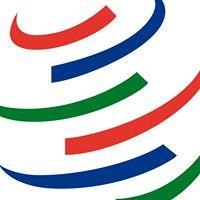(BRUSSELS) – The EU is stepping up its challenge in the World Trade Organisation to practices that force European companies to give up sensitive technology and know-how as a precondition for doing business in China.
The legal action builds on a case first launched in June 2018, significantly broadening and deepens the scope of its WTO action against Chinese measures on forced technology transfers.
The Commission says the action is being taken “in the light of additional findings concerning the incompatibility of the Chinese measures on the approval of investments and the protection of foreign companies’ intellectual property rights with the agreed multilateral rules”.
“We cannot tolerate that EU companies have to give away valuable technology as a price to pay for investing in China,” said the Trade Commisison Cecilia Malmstroem: “This clearly goes against the rules that China committed itself to when it joined the WTO.”
“Today, we launch a broader and more systemic legal challenge against this illegal practice, as we believe that it is a major issue affecting European companies doing business in China. This is a matter that can and should be solved within the international, multilateral framework.”
In its revised request to the WTO, the EU is challenging Chinese laws that regulate:
- the approval of investments in the areas of electric vehicles (New Energy Vehicles) and biotechnology (crop seeds), part of the strategic sectors of Made in China 2025 plan,
- the approval of joint ventures across sectors,
- as they impose performance requirements on foreign companies operating in China, and restrict the economic and contractual freedom of foreign companies on investments and technology transfers.
- The so-called performance requirements force or induce European companies to transfer technology to their joint ventures with Chinese partners in exchange for the necessary administrative approvals by the Chinese authorities. Foreign companies are also required to carry out research and development activities in China.
The Commission says that at the time of joining the WTO China committed not to impose performance requirements in exchange for investment approvals, and to preserve the contractual freedom of companies in China, in particular in the context of investments and technology transfers.
The EU is therefore maintaining that the Chinese current policy measures are in violation of the China’s legal commitments.
The request for consultations formally initiates the WTO dispute settlement proceedings. If consultations do not reach a satisfactory solution within 60 days, the EU can then request the WTO to set up a panel to rule on the compatibility of China’s measures with WTO rules.



